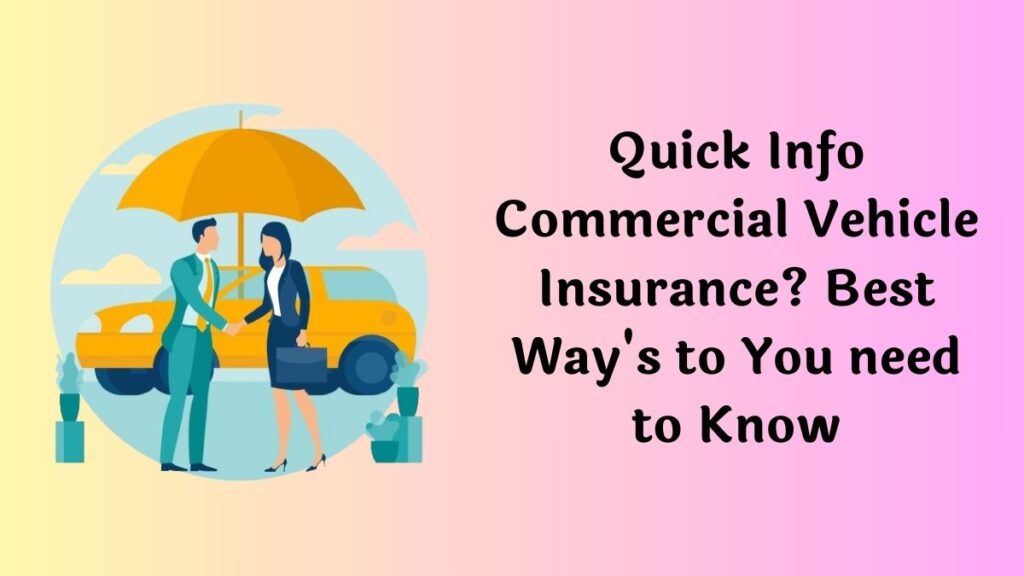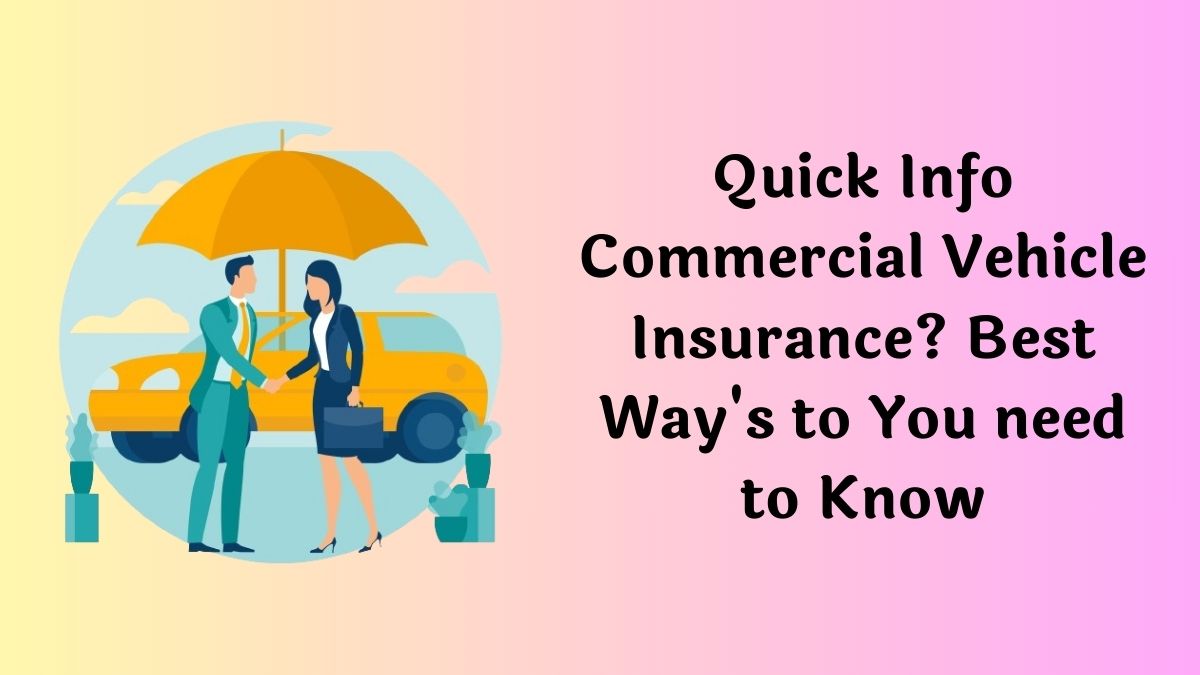In the hustle and bustle of modern business, commercial vehicles are like the unsung heroes keeping things moving. Whether it’s delivering goods, providing services, or just getting employees from point A to point B, these vehicles are the backbone of countless industries.

But with great responsibility comes great risk, and that’s where commercial vehicle insurance swoops in to save the day. In this guide, we’ll walk you through everything you need to know about commercial vehicle insurance, from why it’s important to the different types available, and even some tips on how to lower those pesky premiums.
What’s the Big Deal About Commercial Vehicle Insurance?
Picture this: your business just landed a big contract, and you’ve got a fleet of trucks ready to roll. But what if one of those trucks gets into an accident? Without insurance, you could be looking at a financial disaster. That’s where commercial vehicle insurance comes in. It’s like a safety net for your business, protecting your assets and keeping you out of hot water when the unexpected happens.
The Lowdown on Coverage Options
Commercial vehicle insurance isn’t one-size-fits-all. There are different types of coverage depending on your needs:
Liability Insurance
This is the bread and butter of commercial vehicle insurance. It covers you if your vehicle causes damage to someone else’s property or injures another person.
Physical Damage Coverage
Think of this as insurance for your insurance. It covers damage to your vehicles caused by accidents, theft, vandalism, and other unfortunate events.
Cargo Insurance
If you’re in the business of transporting goods, this one’s for you. Cargo insurance protects the valuable cargo you’re hauling in case of theft, damage, or loss.
Uninsured/Underinsured Motorist Coverage
Not everyone plays by the rules, and some drivers out there don’t have insurance. This coverage steps in to protect you if you get into an accident with one of these folks.
Why Do My Premiums Keep Going Up?
Ah, the million-dollar question. There are a few factors that can impact how much you pay for commercial vehicle insurance:
- The Type of Vehicle: Bigger, more expensive vehicles usually mean higher premiums.
- How Much You Use It: If your vehicles are constantly on the road, you’re considered a higher risk.
- Who’s Behind the Wheel: Good drivers equal lower premiums. It’s as simple as that.
- Where You’re Driving: Some areas are riskier than others, and insurance companies take that into account.
- How Secure Your Vehicles Are: Investing in security measures can actually save you money on insurance in the long run.
Must Read:-
- Quick Guide to Affordable Car Insurance for American in 2024
- What is Car Crash? Best Way’s to Understanding the Causes, Effects, and Preventive Measures in 2024
Q1: Do I really need commercial vehicle insurance?
Q2: Can’t I just use my personal auto insurance for my business vehicles?
Conclusion
Commercial vehicle insurance might not be the most exciting topic, but it’s definitely one of the most important for businesses that rely on vehicles to keep things running smoothly. By understanding your coverage options, knowing what factors can impact your premiums, and taking steps to protect your assets, you’ll be better equipped to navigate the road ahead—pun intended. So buckle up, stay safe out there, and don’t forget to insure those wheels!
